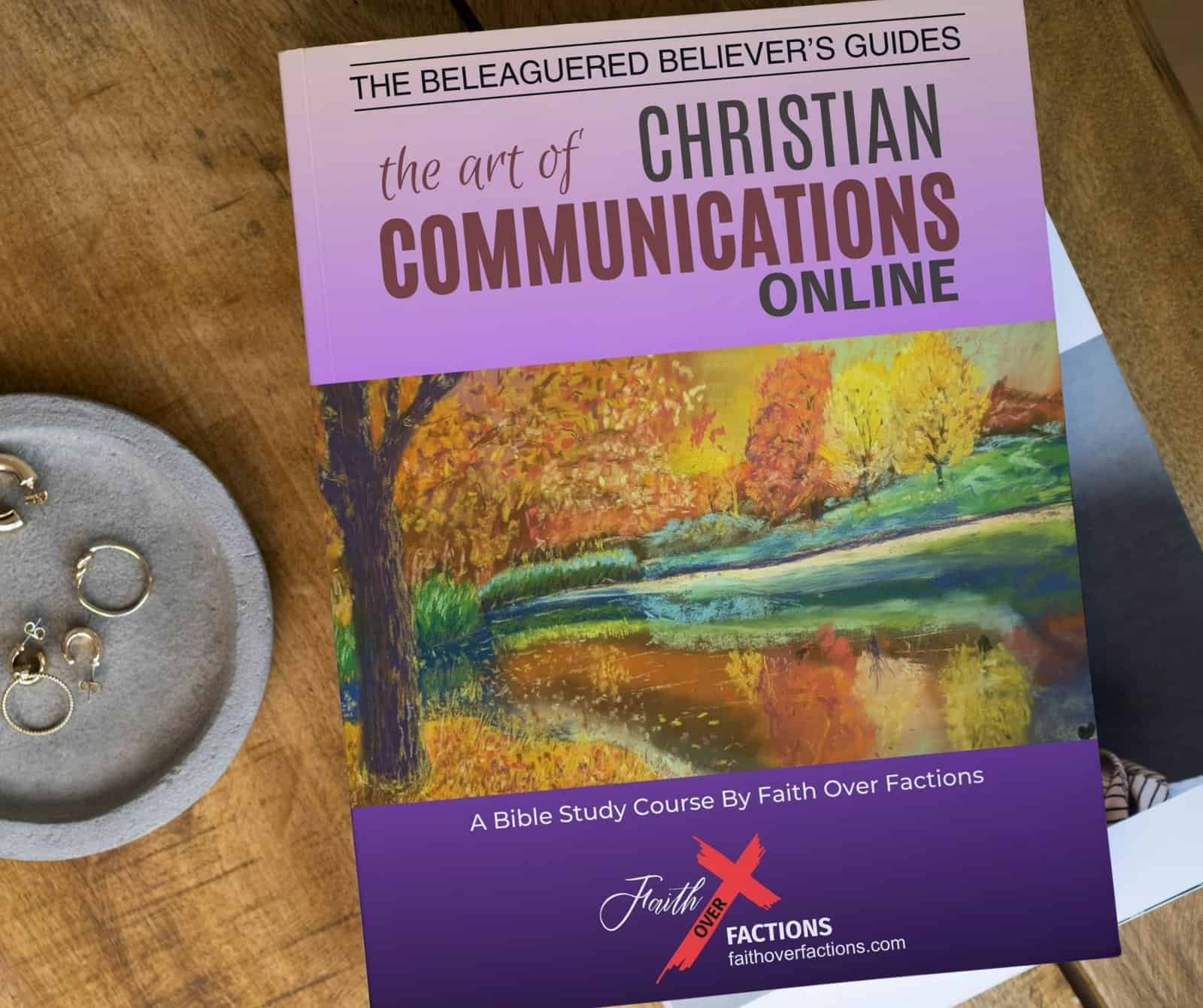
Recognizing false leaders who perpetuate oppression
What happens when the shepherd becomes the wolf? In an age when trust is fragile and spiritual leadership can feel unsafe, we must face an uncomfortable question: how do we discern between true godly authority and abusive control masked as holiness?
This reflection names what many have only whispered: spiritual abuse is real. Jesus confronted it directly—and so must we. The good news is, Scripture doesn't just expose it. It frees us from its grip.
Anchor in the Word
Key Scripture Verse
“They crush people with unbearable religious demands and never lift a finger to ease the burden.”
Matthew 23:4 (NLT)Key Scripture Context
This powerful statement comes from one of Jesus’ most direct and public confrontations with spiritual abuse. In Matthew 23, He denounces the scribes and Pharisees for turning religion into a tool of oppression. They placed impossible standards on the people, demanding external conformity while refusing to offer help, grace, or humility. Their leadership created fear, shame, and exclusion instead of love, mercy, and healing.
Jesus wasn't simply correcting doctrine—He was naming a pattern of spiritual harm. His words exposed a system that distorted God's heart and burdened the very people it was supposed to shepherd. For anyone who has felt spiritually manipulated, judged, or discarded, Matthew 23 is not a condemnation—it’s a rescue mission.
What We're Facing
When Authority Wounds Instead of Heals
Across more than 45,000 Christian denominations, the diversity is beautiful—but it also creates room for dysfunction. When people use Scripture to control rather than comfort, the damage is deep. Rules replace grace. Leaders demand obedience but offer no love.
If you’ve ever walked away from a church feeling more afraid than free, more confused than seen, you are not alone. Jesus warned us about these systems: “They crush people with unbearable religious demands and never lift a finger to ease the burden” (Matthew 23:4).
How Spiritual Abuse Hides in Plain Sight
Spiritual abuse often hides behind good intentions, familiar language, or revered traditions. It doesn’t always shout. Sometimes, it whispers, manipulates, or isolates—leaving people confused, ashamed, or afraid to name what’s wrong. Below are some of the most common patterns that distort God's love and truth:
- Legalism – When faith becomes a checklist of rules, grace gets lost. Leaders may demand strict behaviors to earn favor with God, but Jesus came to lift burdens, not stack them higher (Matthew 23:4).
- Manipulation – Guilt and obligation are twisted into spiritual weapons. People are pressured to give, serve, or submit—not out of love, but to avoid shame or disapproval (Galatians 1:10).
- Fear-Based Messaging – Instead of God's kindness leading to repentance, fear of hell, curses, or divine punishment is used to control people’s choices (1 John 4:18).
- Dark Psychology – Abuse can cloak itself in “spiritual wisdom,” triggering trauma or confusion to weaken resistance. This keeps people dependent, not free (Ezekiel 34:4).
- Authoritarianism – When leaders position themselves as untouchable, accountability disappears. The phrase “Touch not the Lord’s anointed” is often weaponized to silence questions (Matthew 20:26-28).
- Shame-Based Identity Control – Instead of building people up, some leaders make others feel defective. Shame is used to define who you are, rather than Christ’s redemption (Romans 8:1).
- Gaslighting – You raise a concern, and somehow you become the problem. Abusers deny your experience, twist facts, and question your motives to protect their power (Proverbs 17:15).
- Selective Scripture Abuse – Verses are cherry-picked or twisted out of context to justify domination, sexism, exclusion, or unquestioned control (2 Timothy 2:15).
- Isolation – Members are discouraged from reading outside sources, seeking therapy, or having non-church relationships. This breeds dependence and cuts off healthy feedback (Proverbs 11:14).
- Prophetic Intimidation – Someone claims “God told me…” as a way to override your voice, decision, or discernment. Instead of encouragement, you receive commands cloaked as prophecy (1 John 4:1).
- Performance-Based Acceptance – You’re praised when you serve, give, or obey—and ignored or shamed when you don’t. Love and belonging become conditional (Ephesians 2:8-9).
- Exclusion and Shunning – People who question leadership or leave the group are cut off, smeared, or “prayed about” publicly. This isn’t love—it’s control by rejection (John 9:34-35).
- Financial Exploitation – Leaders insist that your blessings depend on giving—especially to them. Tithes and offerings become twisted into spiritual transactions (2 Corinthians 9:7).
- Weaponizing Forgiveness – Victims are told to “forgive and move on” while abusers face no consequences. Reconciliation is rushed to preserve appearances, not healing (Micah 6:8).
Then and Now
In Jesus’ day, spiritual leadership was entangled with social control. The Pharisees and teachers of the law weren’t simply teaching Scripture—they were enforcing layers of tradition that placed unbearable expectations on the people. They created a system where holiness was defined by outward performance, not inward transformation. Jesus called it out not just as error, but as injustice.
These leaders loved the visibility of their position but neglected the weight of compassion. They prayed long prayers in public while ignoring the cries of the hurting. They demanded purity but failed to offer mercy. In Matthew 23, Jesus didn’t just correct their teaching—He condemned their hypocrisy, their power-hoarding, and the way they used religion to crush instead of uplift.
Today, we still see these patterns. Some churches use shame to enforce modesty. Some pastors wield “prophetic words” to silence dissent. Some communities reward blind loyalty while punishing honest questions. And like the Pharisees, they often appear devout on the outside, while internally hungry for control.
Spiritual abuse isn’t new—it’s just evolved. What Jesus saw in the temple courts, we now see on livestreams and conference stages. That’s why His example still matters. We need the courage to recognize abusive systems, the clarity to name them, and the faith to walk in the freedom Christ fought for.
A Better Way: What Scripture Calls Leadership
Jesus radically redefined leadership in a single sentence: “The greatest among you must be a servant” (Matthew 23:11). In a world where authority often meant dominance, Jesus flipped the entire structure. Kingdom leadership isn’t about titles, platforms, or power—it’s about humility, compassion, and the willingness to kneel before others in love.
Paul echoed this truth when he wrote, “Where the Spirit of the Lord is, there is freedom” (2 Corinthians 3:17). God’s Spirit never crushes, coerces, or confines. Instead, it brings liberation from fear, shame, and spiritual manipulation. Real leadership in Christ always leads toward freedom, not control—toward healing, not hierarchy.
As A.W. Tozer warned, “Religious externals can be the enemies of spiritual reality”1. Appearances can deceive. A polished sermon or passionate prayer doesn’t always reflect a heart surrendered to God. We must discern leadership not by charisma or tradition, but by fruit: Does this person make room for grace? Do they serve with joy? Do they leave people more free, more seen, more anchored in Christ?
True spiritual leadership carries burdens—it doesn’t create them. It lifts the weary, listens before it speaks, and leads by example rather than command. Jesus didn’t shame people into holiness. He loved them into healing. That is the better way—and it’s the model we’re called to follow.
Footnote
1 A.W. Tozer, The Root of the Righteous, Moody Publishers, 1955.
Practical Moves of Faith
1. Name the Burden:
Begin by naming what hurt you. What belief, teaching, or leadership dynamic made you feel unseen, unworthy, or afraid to question? Don’t censor yourself—write it down, say it aloud, or pray it honestly. Healing often begins where silence ends.
2. Test the Spirit:
Scripture calls us to test every teaching, every voice, and every authority claiming to represent God (1 John 4:1). Does it reflect the life and love of Jesus? Does it produce fear or freedom? Ask: “Would Christ say this to me—or would He stoop down and speak peace instead?”
3. Seek Healthy Community:
You don’t need a perfect church. You need one where grace is practiced, not just preached. Look for people who listen more than they lecture—who serve without spotlight, and who hold truth and mercy in the same hand. Healthy faith grows in healthy soil.
4. Ask God for Courage:
Leaving spiritual harm can feel disorienting—even terrifying. But you are not leaving God. You’re leaving what tried to take His place. Pray: “God, I’m scared—but I want to follow You into wholeness. Help me step away from what harmed me and toward what heals me.” He will meet you there.
Supporting Scriptures
- Galatians 5:1 (NLT): “So Christ has truly set us free. Now make sure that you stay free, and don’t get tied up again in slavery to the law.”
→ Paul reminds us that freedom is a gift of the Gospel—not something earned or enforced through legalism. Spiritual systems that demand performance over grace contradict the cross. - 2 Corinthians 3:17 (NLT): “For the Lord is the Spirit, and wherever the Spirit of the Lord is, there is freedom.”
→ The presence of God always brings liberty, not bondage. If something in your spiritual life feels controlling or suffocating, it’s worth asking whether God’s Spirit is truly in it. - Micah 6:8 (NLT): “No, O people, the Lord has told you what is good, and this is what he requires of you: to do what is right, to love mercy, and to walk humbly with your God.”
→ God’s expectations are clear and consistent: justice, mercy, humility. When leaders prioritize authority over these values, they fail to reflect God’s heart. - Matthew 20:25-28 (NLT): “Whoever wants to be a leader among you must be your servant… For even the Son of Man came not to be served but to serve others.”
→ Jesus redefined leadership. True spiritual authority is not found in control, but in humble service. Any system that forgets this truth risks becoming spiritually abusive.
Let’s Walk This Out Together
Spiritual abuse isn’t your fault. It isn’t God’s will. And it isn’t the end. If you’ve been made to feel ashamed for asking questions, afraid to leave a toxic environment, or convinced that God’s love is something you have to earn—please hear this clearly: Jesus never called you to follow a system. He called you to follow Him.
His leadership doesn’t crush—it carries. His voice doesn’t shame—it comforts. He doesn’t demand performance—He offers presence. “For my yoke is easy to bear, and the burden I give you is light” (Matthew 11:30). That’s the Jesus who sees you now. That’s the freedom He’s still offering.
If this reflection stirred something in you, don’t keep it buried. Share your story or reflections in the comments—or use #KingdomOverPolitics on social media to join the conversation. Whether your voice trembles or roars, it matters. Together, let’s name what’s broken—and help one another rebuild something better, honest, and rooted in grace.
Journaling Prompts: Recognizing and Reclaiming
- What burdens have others laid on your faith that Jesus never did?
Reflect on beliefs or expectations that felt more like chains than invitations. What teachings or voices weighed you down? - How can you begin separating God's voice from harmful voices of the past?
Think of a time God’s voice brought peace, not pressure. What practices (stillness, prayer, Scripture, safe community) help you rediscover His true tone? - Where do you feel drawn toward healing—but afraid to step?
Be gentle with yourself. Is there a conversation, a boundary, a prayer, or even a break you need to take in order to grow toward health? - What would spiritual freedom look like for you in this season?
Try to picture it. What rhythms, relationships, or boundaries would honor your soul? What does it feel like to belong to Christ—without fear?







